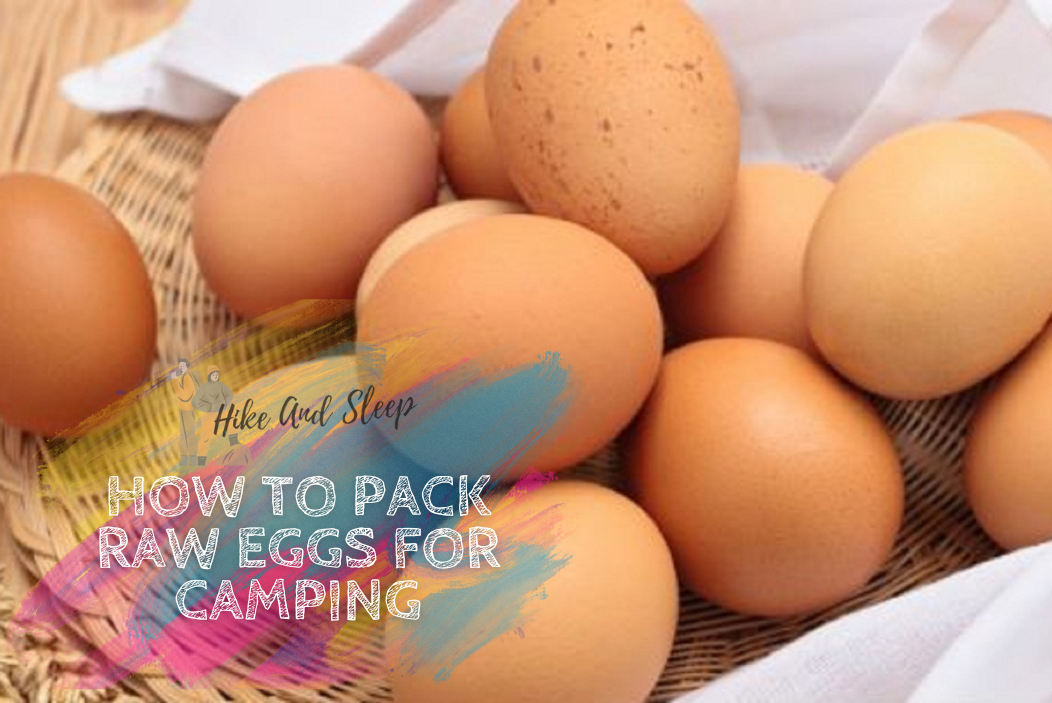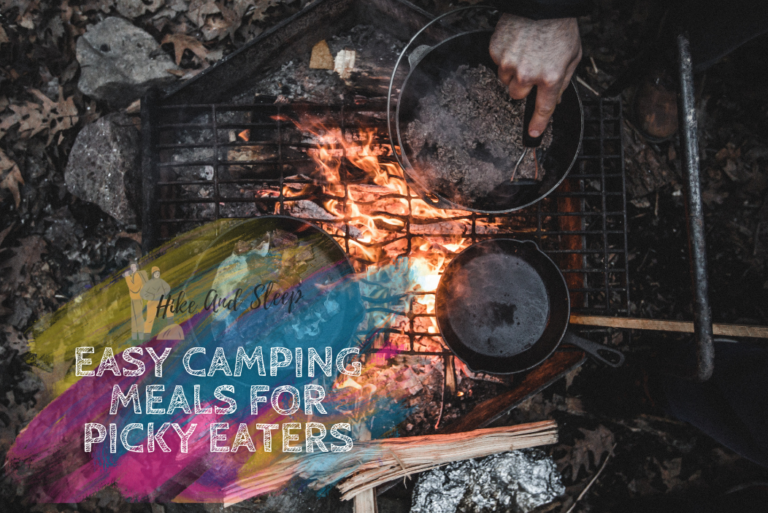How To Pack Raw Eggs For Camping
In the quest for culinary freedom and the desire to savor the delights of nature, packing raw eggs for camping becomes a crucial endeavor.
Juxtaposing the delicate fragility of eggs with the ruggedness of the great outdoors, this article unveils the art of safeguarding those precious ovals.
Through careful selection of containers, expert wrapping techniques, and ingenious cushioning methods, we unlock the secrets of preserving the integrity of raw eggs while communing with the wilderness.
Discover the knowledge and techniques that will empower you to embark on a gastronomic adventure without compromising on the freedom to enjoy fresh eggs.
Table of Contents
Choosing the Right Container for Raw Eggs
When choosing the right container for raw eggs, you should consider factors such as durability, insulation, and size. For campers who desire freedom and are looking for alternative packaging options for raw eggs, there are a few choices available.
One option is to use a hard plastic container specifically designed for carrying eggs. These containers usually have individual compartments to hold each egg securely and prevent breakage. They are lightweight and durable, making them ideal for camping trips.
Another alternative is to use a small cooler or insulated bag. These containers provide insulation to help maintain the freshness of the eggs and protect them from extreme temperatures. It is important to choose a size that fits your needs, allowing enough space for other food items you may want to bring along.
To ensure the freshness of the raw eggs during camping trips, it is recommended to store them in the coolest part of the cooler or insulated bag. This will help to maintain a consistent temperature and reduce the risk of spoilage.
Additionally, it is best to pack the eggs with other cold items to create a cooler environment inside the container. This can be done by placing them next to ice packs or frozen items. By following these best practices, you can enjoy fresh eggs during your camping adventures.
Transitioning into the subsequent section about wrapping techniques to protect raw eggs, it is important to ensure that the chosen container is not the only protective measure taken.
Wrapping Techniques to Protect Raw Eggs
How can wrapping techniques be used to protect raw eggs during camping trips? When it comes to packing raw eggs for camping, it is important to ensure their protection to avoid any mess or waste. Here are some wrapping techniques that can help keep your eggs safe and intact:
- Bubble Wrap: Wrap each egg individually with bubble wrap to provide cushioning and prevent them from cracking.
- Cloth Towels: Wrap the eggs in cloth towels, such as dish towels or hand towels, to provide a soft and protective layer.
- Tissue Paper: Place each egg in tissue paper and wrap it securely to provide a lightweight yet effective protective barrier.
By using these wrapping techniques, you can ensure the safety of your raw eggs during camping trips.
However, if any of the eggs do crack, don’t worry! There are alternative egg storage options you can consider, such as transferring the cracked eggs into a sealed container or cooking them immediately.
Additionally, cracked raw eggs can still be put to creative use, such as making scrambled eggs or adding them to a campfire omelet. So, even if mishaps occur, there are ways to make the best out of the situation and enjoy your camping experience to the fullest.
Cushioning Methods for Extra Egg Protection
One effective cushioning method for providing extra protection to raw eggs during camping is using foam inserts. Foam padding is a great option as it offers soft and flexible cushioning, which helps absorb shocks and impacts that might occur during transportation. The foam inserts can be cut to size and placed around each individual egg, creating a protective barrier that prevents them from coming into contact with hard surfaces or each other.
Another option for cushioning is using bubble wrap. Bubble wrap is made up of small air-filled bubbles that provide excellent shock absorption. It can be wrapped around each egg, creating a protective layer that helps cushion them against any bumps or jolts that may occur during the camping trip.
When using foam padding or bubble wrap, it is important to ensure that the eggs are snugly secured within the packaging. This can be done by using tape or rubber bands to hold the foam inserts or bubble wrap in place.
By using these cushioning methods, campers can have peace of mind knowing that their precious eggs will stay intact and protected during their camping adventure.
Storing Raw Eggs Safely in a Cooler
A cooler is an essential tool for storing raw eggs safely during camping trips, as it helps maintain the proper temperature to prevent spoilage. When it comes to choosing a cooler for storing raw eggs, it is important to consider the insulation capabilities. Look for a cooler that is well-insulated to ensure that the eggs remain at a safe temperature throughout the duration of the camping trip.
Handling raw eggs without breaking them is crucial to ensure their safety during transportation and storage. Here are some tips to help you handle raw eggs properly:
- Gently place the eggs in the cooler, making sure they are not touching each other or the sides of the cooler.
- Use a separate container or carton to hold the eggs, providing an extra layer of protection against breakage.
- Place the eggs on top of other items in the cooler, avoiding any heavy objects that could potentially crush them.
By following these guidelines, you can ensure that your raw eggs stay safe and intact during your camping trip.
Recommended Read:
- Can You Make Your Own Dehydrated Meals
- How To Cook Pizza Over A Campfire
- How To Keep Milk Cold When Camping
Tips for Handling and Transporting Raw Eggs
When handling and transporting raw eggs, it is important to follow proper hygiene practices to minimize the risk of contamination. Raw eggs can carry harmful bacteria such as Salmonella, which can cause foodborne illnesses. Here are some tips to help you handle and transport raw eggs safely while camping:
- Use clean utensils: Use clean utensils, such as a spoon or fork, to handle the eggs. Avoid using your hands directly to prevent cross-contamination.
- Keep eggs separate from other foods: Store raw eggs in a separate container or bag to prevent any potential leakage or contact with other foods.
- Use a cooler: If you plan to bring raw eggs to your camping trip, make sure to pack them in a cooler with plenty of ice or ice packs to keep them at a safe temperature.
To provide you with some ideas, here are a few recipes using raw eggs for camping meals:
| Recipe | Description |
|---|---|
| Campfire Omelette | A delicious omelet cooked over a campfire filled with your favorite veggies and cheese. |
| Egg Salad Sandwich | A classic camping lunch option, made with hard-boiled eggs, mayonnaise, and seasonings. |
| French Toast | Dip bread slices in a mixture of beaten eggs, milk, and cinnamon, then cook on a camping stove or grill. |
| Breakfast Burritos | Scramble eggs with cooked bacon, cheese, and veggies, then wrap in a tortilla for a portable breakfast option. |
| Egg Fried Rice | A quick and easy camping dinner, made with cooked rice, scrambled eggs, and a variety of vegetables and spices. |
If you’re looking for alternative options for protein sources while camping, consider the following:
- Canned fish: Tuna, salmon, and sardines are all excellent sources of protein and can be easily packed for camping trips.
- Dried meats: Beef jerky, biltong, or dried sausages are lightweight and protein-packed options that require no refrigeration.
- Plant-based protein: Lentils, beans, and quinoa are all nutritious and protein-rich options for campfire meals.
- Nuts and seeds: Pack a variety of nuts and seeds like almonds, walnuts, and pumpkin seeds for a quick and easy protein snack.
Conclusion
In conclusion, packing raw eggs for camping requires careful consideration of the container, wrapping techniques, cushioning methods, and safe storage in a cooler.
By following these steps, campers can ensure that their eggs are well-protected and ready to be cooked in the great outdoors.
So, remember to choose the right container, wrap it with care, and cushion for extra protection, and store it safely in a cooler for a worry-free camping experience.







